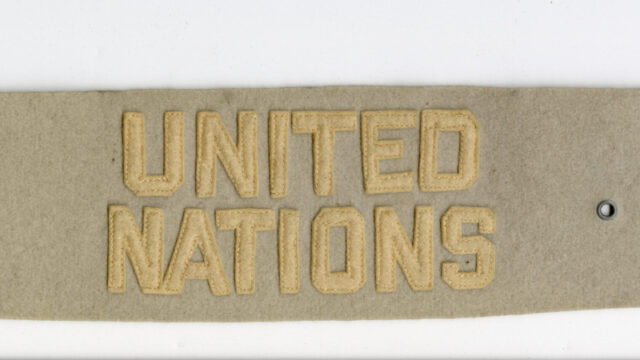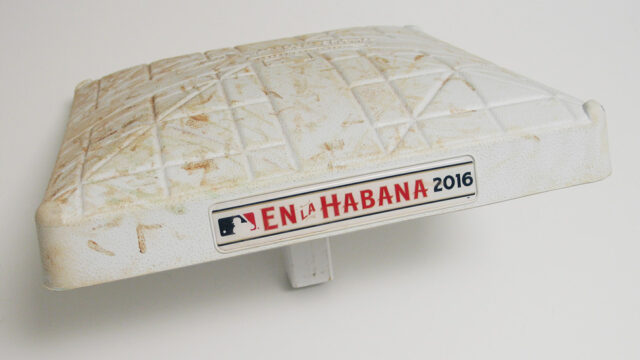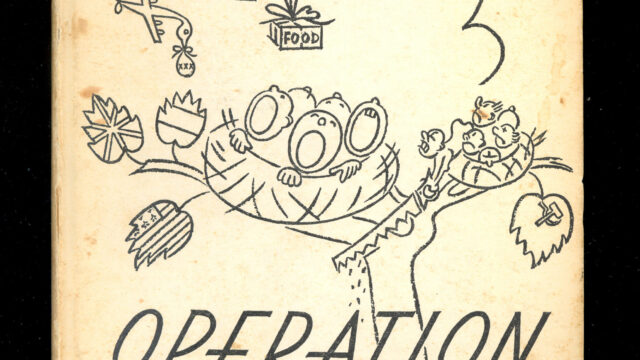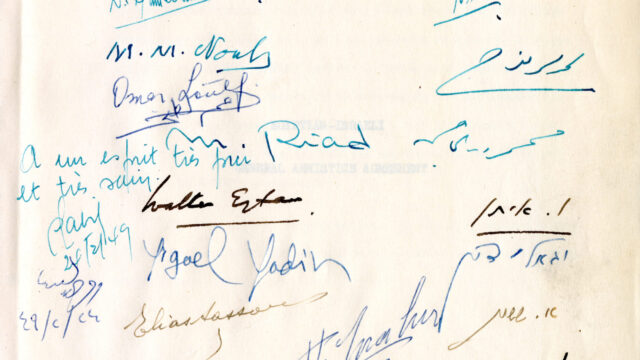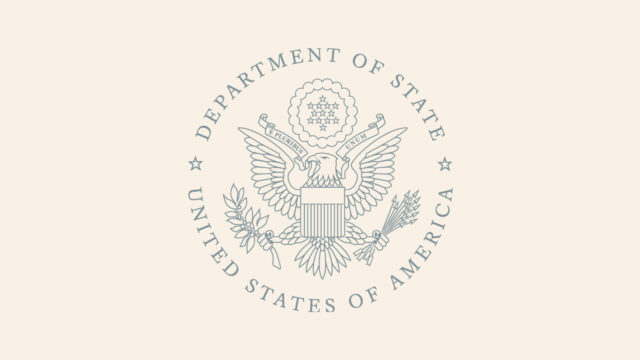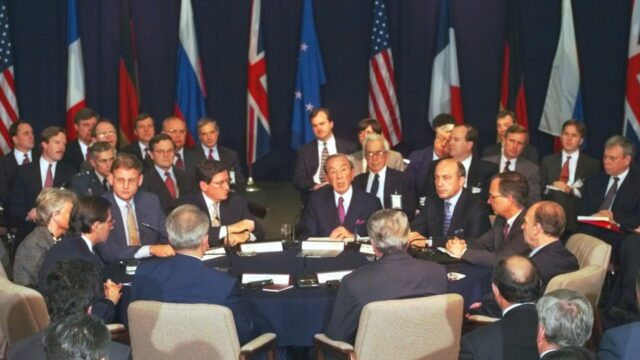Item
Ralph Bunche's UN Armband
Dr. Ralph J. Bunche was a pioneering African American diplomat who shaped some of the most remarkable moments in the twentieth century. Born in the era of segregation and Jim Crow, Dr. Bunche spent his life engaged as a civil rights activist in the United States while working for peace in troubled…
